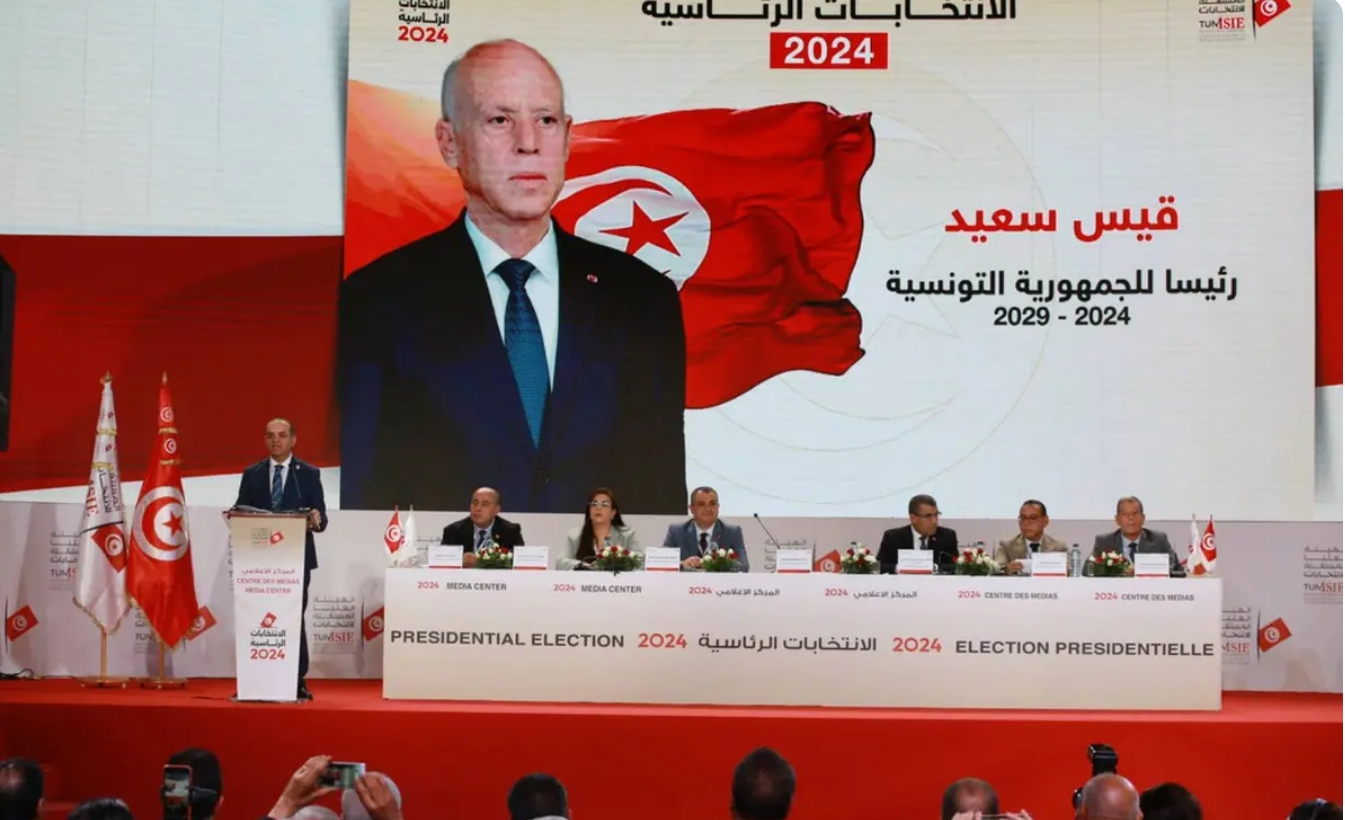Kais Saied Wins Second Term Amid Low Voter Turnout and Criticism of His Power Consolidation
Han Saerom (Sookmyung Women’s University)
Tunisian President Kais Saied has secured a second term in office following the presidential election held on October 6, 2024, with an overwhelming majority of 90.7% of the vote. This margin is even larger than that achieved by former President Ben Ali in 2009, just two years before he was forced to flee the country amid mass protests.
On the one hand, Saied’s landslide victory might suggest that significant number of the populations still support for his anti-corruption platform. In his post-election remarks, Saied framed his victory as a continuation of Tunisia’s 2011 revolution, pledging to “cleanse” the country of corruption and treason.
His anti-corruption rhetoric has been a cornerstone of his political platform since his first election in 2019. In 2021, Saied took dramatic steps by suspending parliament, declaring a state of emergency, and rewriting the constitution to grant the presidency broader powers. Over the past year, several high-profile political figures, including right-wing leader Abir Moussi and Islamist politician Rached Ghannouchi, have been imprisoned on charges ranging from inciting unrest to violating a controversial anti-fake news law, which rights groups claim has been used to stifle opposition.
It is also important to note, however, that the election was marked by very low voter turnout. Only 28.8% of eligible voters participated in the election, the lowest turnout since the 2011 revolution. In the lead-up to the election, numerous candidates expressed interest in challenging Saied, with 17 individuals submitting paperwork to run. However, the Independent High Authority for Elections (ISIE) approved only three candidates, a sharp reduction from the 26 candidates allowed to run in 2019.
The role of the ISIE, whose members were all appointed by Saied under his newly ratified constitution, became a point of criticism. Despite Tunisia’s Administrative Court ruling that three of the disqualified candidates should be reinstated, the ISIE refused to comply, asserting its constitutional authority over election integrity. The election was also shaped by changes in the 2022 constitution, including raising the minimum age for presidential candidates to 40, barring dual citizens from running, and preventing those with ongoing legal cases from participating. These restrictions further narrowed the field of candidates.
카이스 사이에드, 낮은 투표율과 권력 집중 비판 속에서 2번째 임기 당선
한새롬 (숙명여자대학교)
카이스 사이에드 튀니지 대통령이 2024년 10월 6일에 치러진 대선에서 압도적인 승리로 재선에 성공했다. 사이에드는 90.7%의 득표율을 기록했으며, 이는 튀니지의 독재정권 대통령 벤 알리가 대규모 시위에 의해 축출되기 전인 2009년 이룬 득표율보다도 높은 수치다. 사이에드의 가장 강력한 경쟁자였던 사업가 아야쉬 자멜은 선거 운동 대부분을 감옥에서 보냈으며 7.4%의 득표를 얻는 데에 그쳤다.
한편으로 사이에드의 압도적인 승리는 그가 내건 부패와의 전쟁에 대한 여전히 폭넓은 대중들의 지지를 의미한다고 할 수 있다. 선거 후 첫 발언에서 사이에드는 이번 승리가 “혁명의 연장선”이라고 주장하며 “우리는 부패와 배신, 음모로부터 국가를 정화할 것”이라고 말했다. 그는 2019년 첫 임기 때부터 부패 척결을 약속해 왔다. 하지만 동시에 이번 선거 결과는 유권자들의 무관심을 드러낸다. 이번 대선의 투표율은 28.8%로, 2011년 혁명 이후 가장 낮은 수치를 기록했다. 이는 2019년 대선 1차 투표의 49% 투표율과 비교했을 때 큰 감소를 보여준다.
이번 대선에는 2022년 개정된 헌법이 중요한 영향을 미쳤다. 개정된 헌법은 대선 후보의 최소 연령을 40세로 상향 조정하고, 이중 국적자의 출마를 금지했으며, 법적 문제에 직면한 사람들의 후보 등록을 금지했다. 이러한 제약으로 인해 후보군은 더욱 좁아질 수밖에 없었다. 나아가 많은 인권 단체들은 사이에드 시대에 개정되거나 새롭게 만들어진 법안들이 반대 의견을 억압하는 도구로 사용되고 있다고 비판하고 있다. 사이에드는 2021년 국가 비상사태를 선포하고 의회를 해산했으며, 대통령 권한을 대폭 강화하는 헌법 개정을 추진한 바 있다. 이어 2023년 우파보수정당 대표인 아비르 무시와 이슬람 정당인 엔나흐다의 지도자인 라쉬드 가누시를 포함해 여러 정치적 반대파가 구금되거나 기소된 바 있다.

